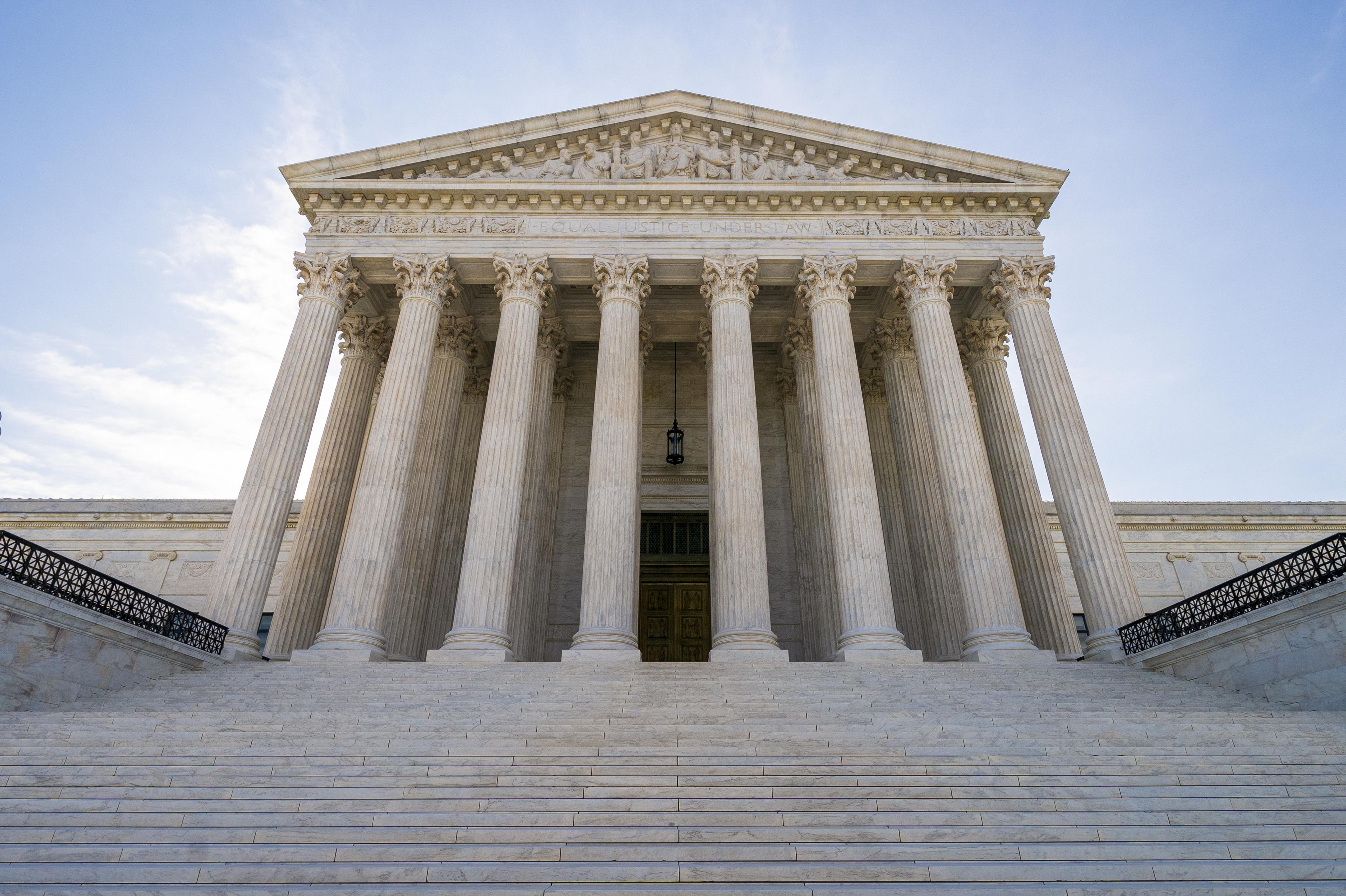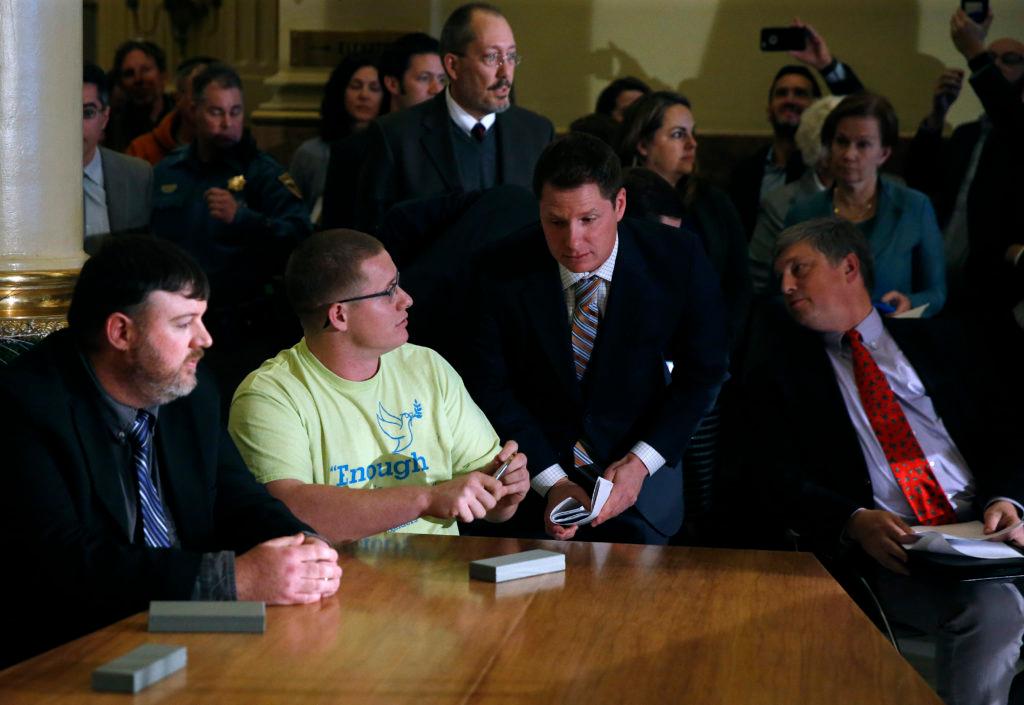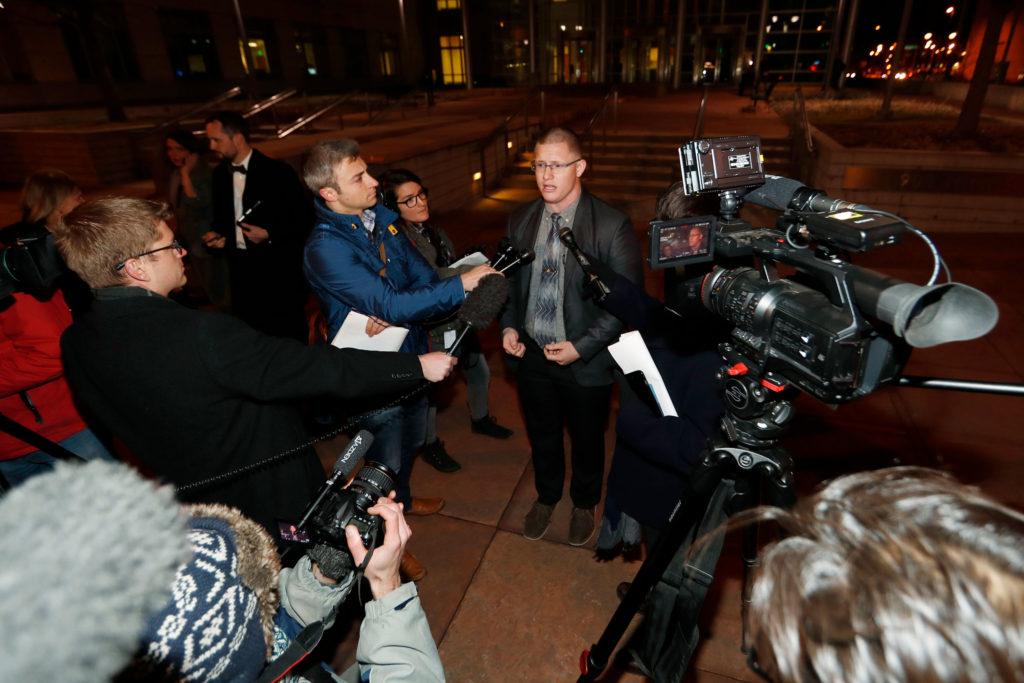
Ask Micheal Baca why he’s spent almost four years defending the Electoral College all the way to the U.S. Supreme Court, and he’ll say it’s because he hopes the institution ends up getting gutted.
Baca, now 28, was working at Jamba Juice and driving for Uber in Denver in 2016, when he ran successfully to be a Democratic presidential elector.
When the majority of Colorado’s voters picked Hillary Clinton over Donald Trump, Baca was called upon to fulfill his role in the Electoral College. State law required that Baca, who initially supported Bernie Sanders in the primary, cast his vote for Clinton.
But instead, when it came time for the official vote at the state Capitol, Baca, and two other electors, wrote in John Kasich -- part of a national hail-Mary movement working to prevent Trump from becoming president by throwing the Electoral College to a candidate who hadn’t even been on the ballot.
The other two Colorado electors eventually shifted their votes to Clinton, but Baca didn’t. He was removed by then-Secretary of State Wayne Williams and replaced with someone who cast a vote for Clinton.

Baca challenged his dismissal and the case wound its way through the federal courts. Last August, the 10th Circuit Court of Appeals sided with him. The court stated that Colorado officials acted unconstitutionally by removing him as a “faithless elector.”
State officials challenged this decision and the case will be heard in front of the high court Wednesday. Only eight justices will deliberate though; Justice Sonia Sotomayor has recused herself from the Colorado case because she knew one of the other electors.
Not 'the democracy that people think we have'
At question is whether states can penalize electors for refusing to vote for the presidential candidate who won the statewide vote, or if electors have the freedom to choose how they cast their ballots.
“I hope the court does side in favor of electoral freedom,” Baca said recently from his Las Vegas home, where he’s currently teaching high school government. “Then people are going to realize that we have 538 people ... that can vote for president. The Electoral College doesn’t match the form of democracy that people think we have.”
That’s Baca’s overall goal: to push the Supreme Court to address the Electoral College. President Trump is one of five presidents who lost the popular vote -- but collected enough electoral votes to win.
On the state’s behalf, Colorado Attorney General Phil Weiser will argue that all states have the right to run, monitor and enforce their elections.
Thirty-two states have laws that bind electors to vote for the candidate who won the state. But even states that don’t have those laws in place, like South Dakota, are rooting for Colorado and wrote amicus briefs on the state’s behalf, Weiser said.
If the justices side with Baca, Weiser said it could create a constitutional election crisis.
“Any electors need to understand they’re taking an oath; they’re pledging what they’re going to do. People are relying on that oath,” he said. “That is something I have continued to fight for. I’m worried about the consequences if we don’t win this case.”
Weiser said Baca’s push for Electoral College reform is a different battlefront.
“The Electoral College, as an institution, is what we have in our constitution,” he said. “Whether or not there are better systems out there, there are other ways people can debate that or seek to act on it. Right now though, I’m in the world of living in the system we have and making it work effectively.”
The short-lived electoral revolution
Baca will listen in on the oral arguments via phone. Attorneys from Equal Citizens, a nonprofit that advocates for Electoral College reform, will argue the case on Baca’s behalf. They are also representing electors from Washington state in a separate case, who were fined $1,000 for not casting votes for the presidential candidate chosen by voters.
Equal Citizens’ attorney Jason Harrow said his clients don’t like the word “faithless” to describe what they tried to do in 2016.
“I think the vote of every elector should matter. But matter in what sense?” Harrow said. “Our clients, they think of themselves as being faithful to the voters of the popular vote. … Micheal Baca, he got to that day ... and he thought what would these millions of people in my state want me to do?”
The effort to prevent Trump from taking office started in the wee hours after Election Day, Nov. 8, 2016, Baca said.
Between that morning and mid-December, when Baca had to cast his electoral college vote, he reached out to other electors across the country hoping to coordinate a coup that would eventually send the election to the House of Representatives.
The effort was quite unprecedented and it didn’t work.
Between 1900 and 2012, only nine electors voted against their respective state’s choice in presidential candidates. In 2016, almost a dozen rebelled around the country, the largest group in a single election since the early 1800s -- to no avail.
Baca stumbled into this cause given the events of 2016. He said he originally ran to be a Colorado elector simply because he thought it would be cool to have his name in the Library of Congress.
But as the presidential campaign between Clinton and Trump rolled out, Baca said he thought Trump was dangerous and realized that the power to perhaps change the outcome of the election was in his hands.

“I was trying to be faithful to the constitution, but also stick to my values and try to put country over party,” Baca said. “It’s a roundabout way to force action. It’s going to be a forcing move with our government.”
But Weiser warns about a “scary reality” if presidential electors are able to have true free will -- without state sanction -- in picking the next president.
“What’s at stake in this case is whether or not our elections system will function as it has for literally over 220 years, or instead we’re going to throw a monkey wrench or open a Pandora’s box, and try to reimagine a system of presidential selection,” Weiser said. “I’m not saying our system is perfect, but if we start telling every elector they can do whatever they want, we are playing with fire.”
Preparing to argue on a conference call
The Washington and Colorado cases will be heard separately on Wednesday -- Colorado goes second.
The U.S. Supreme Court justices are currently hearing oral arguments via telephone due to the COVID-19 pandemic. Weiser said it’s added some new challenges as he prepares his first argument in front of the high court.
“One challenge I’ve already encountered, when you’re on the telephone and not in person, you’re apt to sound faster,” Weiser said. “Part of what is a challenge is to learn and compensate for the differences. Without the full experience and visual clues, one issue is how fast are you going?”
Weiser has been practicing with law school friends in moot courts on the phone. He will deliver the actual arguments from the grand conference room in his office in Colorado’s Judicial building -- rather than from his home in Denver where he’s been working the last two months.
While the justices won’t be able to see him, he plans to wear a suit and tie and stand up, mimicking the physical experience of arguing inside the hallowed U.S. Supreme Court building in Washington, D.C.








